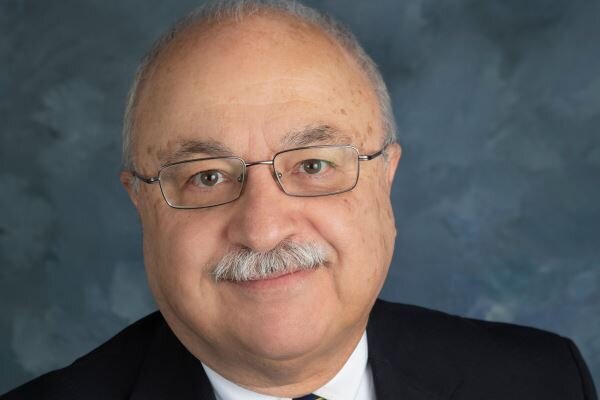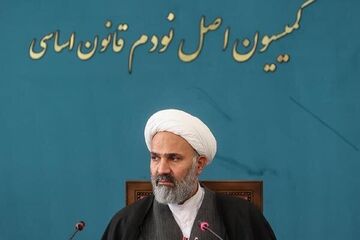TEHRAN (Bazaar) –Nader Entessar, Professor Emeritus of Political Science from university of South Alabama says that Washington's plan is to offer an interim agreement to Iran without any guarantee that even a temporary agreement can or will be implemented by Washington.
“For all practical purposes, Joe Biden is a lame-duck president and is not in a position to overcome congressional opposition to a nuclear agreement (even a temporary one) with Iran without paying a heavy political cost domestically,” Entessar told Bazaar News Agency.
Following is the full text of the Bazaar interview with Professor Entessar:
Q: Following the Sultan of Oman's visit to Iran, Tehran announced that one of the topics discussed was the nuclear issue. The state newspaper of Oman (Oman Daily) has also evaluated the negotiations in this field positively. What is your assessment of this issue?
A: Oman has served as a messenger and an honest broker between Iran and the United States for many years. For example, Muscat has played a critical role in arranging exchanges of detainees between Tehran and Washington. In addition, Oman has hosted secret meetings between Iranian and American negotiators both before and after the signing of the JCPOA. More than any other regional country, Oman can serve as a facilitator of negotiations between two states that have no diplomatic relations with each other but hold Oman in high regards. However, Oman's efforts cannot succeed by themselves without a modicum of trust and understanding between Tehran and Washington; elements that are currently absent.
Q: Before the Sultan of Oman's visit to Iran, Iran's Foreign Minister Hossein Amir-Abdollahian visited Oman and spoke about receiving new ideas about the nuclear issue. Later, the media revealed that ‘Brett McGurk’, White House Coordinator for the Middle East and North Africa, made a secret trip to Oman (about two weeks before Amir-Abdollahian’s trip to Oman). Do you think that the idea received by Iran's foreign minister is the same plan for the temporary agreement that the United States has proposed?
A: This is very likely the case. But we do not know the details of Brett McGurk's talks with Omani officials, or if McGurk offered any new ideas that were significantly different from what the Biden administration has been offering since it came to power. What is clear to me is that Washington's plan is to offer an interim agreement to Iran without any guarantee that even a temporary agreement can or will be implemented by Washington. For all practical purposes, Joe Biden is a lame-duck president and is not in a position to overcome congressional opposition to a nuclear agreement (even a temporary one) with Iran without paying a heavy political cost domestically.
Q: If we assume that the plan received by Amir-Abdollahian is the American interim agreement plan, will this plan be an intermediate step to revive the JCPOA? If so, when do you think the JCPOA will be revived? After the US presidential election?
A: Given the enormity of foreign policy challenges facing the United States today, Biden is not in a position to seriously entertain the idea of reviving the JCPOA in waning months of his first term. Besides, resuscitation of the moribund nuclear agreement is a very tall order for Biden to accomplish at this stage of his presidency even if he was truly committed to do so. The landscape of American politics has been in constant flux and turmoil for sometime now. So, it is not very useful to speculate about what might happen to this or any future U.S.-Iran nuclear agreement after the next year's presidential election in the United States. Iran needs to focus on its own options and matters under its own control rather than await for some magical development in the aftermath of the 2024 U.S. elections.
Q: In a positive report, the International Atomic Energy Agency announced the resolution of 2 safeguard disputes with Iran. These two issues are: the issue of 84% enrichment and the discovery of enriched uranium in Marivan. The first case has been closed by the IAEA and the second case is being verified. In your opinion, what effect will this positive report have on the JCPOA revival process?
A: Any positive report by the IAEA will have a positive impact on nuclear negotiations between Iran and the West. But we have to remember that much of the recent dispute between Iran and the IAEA have revolved around the Safeguards Agreements. Even if the IAEA and Iran manage to resolve the remaining two Safeguards disputes, the obstacles on the path of the revival of the JCPOA will still remain. In other words, although some of the issues between Iran and the IAEA overlap with those of the JCPOA, the ongoing nuclear difficulties between Iran and the West will most likely persist.
Q: Expressing dissatisfaction with the agreement between Iran and the IAEA, Israel has accused this organization of neglecting these two issues. What is your assessment of Israel's position? If an agreement is reached, what action might Israel take? Can it disrupt an agreement that is supported by the United States?
A: The history of Israel's involvement in Iran's nuclear dispute clearly demonstrates that Israel will continue to play the role of the spoiler in this process. If all the remaining issues between Iran and the IAEA are resolved and an agreement is reached, Israel will do its best to torpedo the agreement. Israel's goal is to maintain an atmosphere of permanent crisis around Iran. Israel has succeeded in achieving some of its goals while failing to do so in other respects. However, it is likely that Israel's principal objectives with respect to Iran will remain unchanged no matter what happens to Iran's nuclear file.
















نظر شما